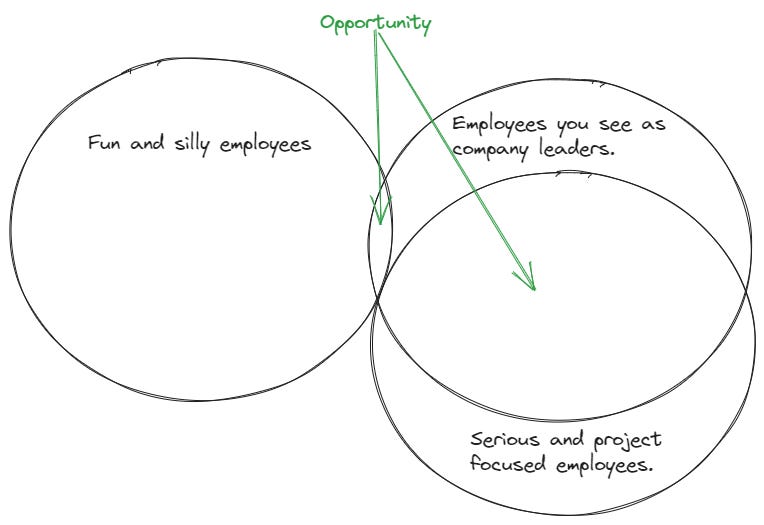My Missed Career Opportunities, Or Why I'm Not an SVP
We've all had missed opportunities. What have you learned from yours?
One by one, the leadership team dropped like flies.
A manager left, and their peer manager left. A senior manager transferred out, and then a Director. The leadership group was decimated. The remaining few leaders were handed massive organizations, to hold things together until some hiring could take place.
Some of those remaining leaders took advantage of the situation. Their organizations tripled in size, and they were soon promoted.
What happened to me? Well, I was one of the first people who transferred out. I watched the action from another organization. Whoops! But in reality, there wasn't anything I could have done. I didn't know people would leave a leadership vacuum shortly after I left. Perhaps me leaving was what partially caused the exodus.
There's no reason to second guess those types of opportunities. Sometimes you're in the right place at the right time. Sometimes you aren't.
On the other hand, there are times when you can choose how to act, or how to react. They're the opportunities you have control over. You can either grab them and move forward, or you can watch them fly past.
I'm going to talk about a few instances of those types of opportunities.
Before doing so, I wanted to be clear. If I could turn back the clock, I wouldn't want to change a thing because I'm grateful for where I landed in the end. I think it's possible that the errors I made below taught me valuable lessons, which prevented me from making a worse error later.
Regardless of my pleasure at how things have turned out, it's still valuable to learn from those misses. Below are a few key moments in my career where I missed an opportunity, and things could have turned out differently.
I've talked in the past about specific career mistakes (twice). In this instance, I'm going to focus a bit less on the specific mistakes, but on the patterns which lead to missing opportunities.
I wasn't serious enough for my first management opportunity.
I spent my first years of my career at a publishing company. As a non-tech company, there weren't other technical folk to learn from, so it was a great time of personal research, learning, and growth.
The team I was on was pretty small (2-4 engineers at any given time). We ran the websites of a couple of dozen business publications. Overall, I'd say we ran a fairly effective organization.
A few years in to my career, our manager left. I'd been interested in changing the direction of our team, and I felt this was a great opportunity to step up as the manager of the team.
I knew our main product partner, and I felt they trusted me. I knew our project pipeline, and had a hand in setting release dates, and negotiating priorities. Overall, on paper, I was ready to become the manager.
I spoke to our skip manager, and explained that I wanted an opportunity to lead the team.
I was told that I wasn't ready. I was told that I needed more maturity before I could be allowed to step up.
At the time, I translated maturity to age. I was significantly younger than other leaders at the company. However, I realized over the years that they meant behavioral maturity.
I had a good friend on my team, and we had a great time in that job. I was casual, and silly. We regularly pranked each other, and our co-workers.
Fair or not fair, people expect managers to be serious, and product focused people. They want to trust that their managers will not embarrass themselves in front of customers, and that they'll handle potential issues with respect.
As much as I was technically competent, I wasn't acting like a serious leader. As one example, I remember that my co-worker and I renamed our website from ".com" to ".dave" on the website logo for only our manager's login. It was hilarious, except that he didn't notice it for months, so we forgot about it. Until one of our customers noticed it while our manager was giving a demo.
While being silly and fun in the office is great, it doesn't set the tone that you're ready to lead the organization. Additionally, there is a time and place for being silly, and I'll admit that those boundaries were not in the right place for me.
It took years (longer than it should have taken) to be offered a position to lead the team. It worked well in the end, but I delayed my career growth due to my behaviors.
Main thing I should have done? Without changing my personality too much, I could have acted like a serious leader in settings where I interacted with our leadership team. There's a famous saying, "Dress for the position you want," but that should include how you behave as well. Behave for the position you want.





